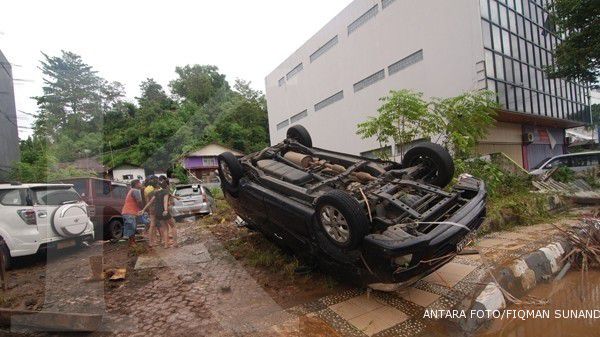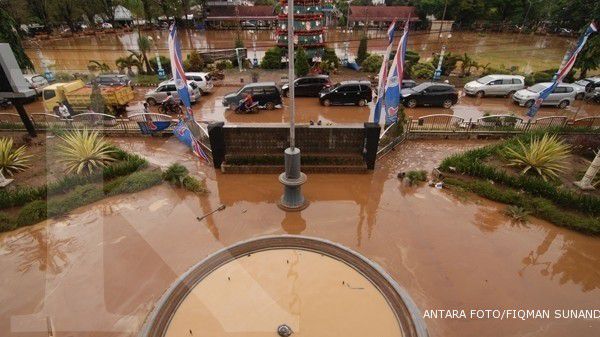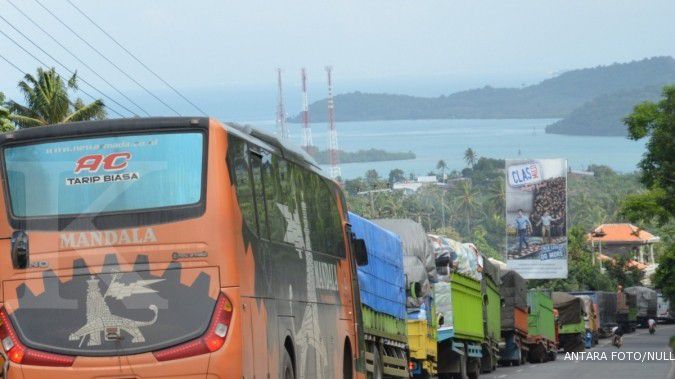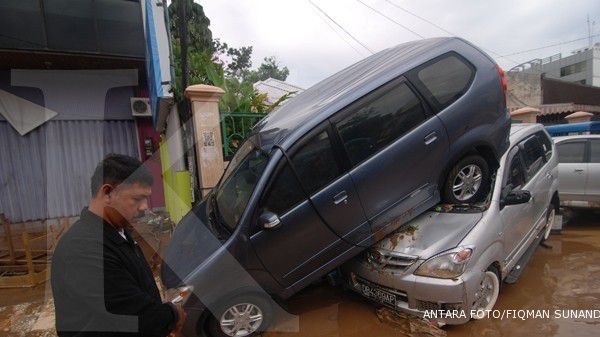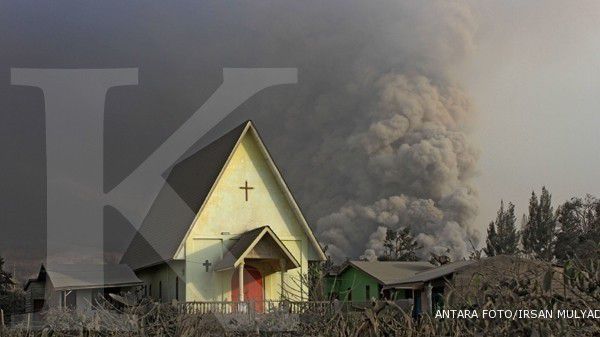JAKARTA. While floods receded in several areas of Jakarta on Monday, heavy downpours inundated areas in at least 26 regencies and municipalities across the archipelago, forcing thousands to flee their homes.
The latest area to be severely affected was oil-rich South Sumatra province where six regencies and municipalities were inundated, according to the province’s Disaster Response Agency (Tagana).
The regencies of Komering Ilir, Ogan Ilir, East Ogan Komering Ulu, Muara Enim, North Musi Rawas and Palembang were among the hardest hit. “The floodwaters reached a depth of more than 1 meter,” said Tagana coordinator Sumarwan. “We still don’t have an exact number of evacuees, but my estimation is it could amount to more than 3,000 families,” he said.
Incessant heavy rain also affected several of the country’s rice and vegetable production hubs, including Karawang and Subang in West Java, and Pati in Central Java. “Thousands of hectares of rice fields were inundated in Subang alone,” said the head of prevention at the West Java Disaster Mitigation Agency (BPBD), Dadang Ronda, as quoted by Antara.
However, Deputy Trade Minister Bayu Krisnamurthi said that the rice supply for Greater Jakarta would not be disrupted as there was a stockpile sufficient for up to 12 days. “There has also been disruption in the distribution of rice because of flooded highways in Karawang and Cirebon [in West Java],” said Bayu.
Deputy Finance Minister Bambang Brodjonegoro warned of a higher risk of inflation due to the flooding, but remained upbeat that it would not overshoot the 1 percent inflation ceiling for January.
This year, the government has predicted a curb in annual inflationary pressure to below 5 percent.
The government has been pushing hard to ease pressure after last year’s annual inflation overshot the target of 4.9 percent to 8.38 percent.
The impact of the floods on businesses has already been felt not only in terms of production but also in the distribution network, according to the chairman of the Industrial Estate Association (HKI) Sanny Iskandar as reported by Antara.
He said that production targets were unattainable as workers could not get to work because their homes were inundated, or access to their factories was blocked due to the floods.
“The distribution of goods to Tanjung Priok Port has been disrupted, and so is the supply of materials from the port to the industrial estates. This is because of the floods affecting Jakarta, Tangerang, Bekasi, Cikarang and Karawang,” he said.
Indonesia is currently enduring its annual season of torrential rain between January and March, which regularly causes major flooding across the archipelago.
Army Chief of Staff Gen. Budiman has instructed all personnel to gear up for the disaster, readying at least 5,000 personnel to help evacuate victims and work on reconstruction efforts.
Relief efforts are underway for victims of the North Sulawesi floods and landslides in which 19 people were killed and more than 15,000 people evacuated.
In Jakarta, the death toll from the floods climbed from seven on Sunday to 11 on Monday, according to BPBD Jakarta. BPBD Jakarta’s head of control, Basuki Rakhmat, said one victim drowned in his home following an epileptic fit, while others were swept away in flooded drains or rivers or were electrocuted.
The water level of some flooded areas in the capital started to subside as the city only saw light rain during the morning and afternoon.
However, the number of evacuees jumped to 63,958 from 48,263 on Sunday. They were catered for at 293 shelters in 97 subdistricts across the city. “The rise in the number is due to incomplete data that we gathered on Sunday,” Basuki said.
Jakarta Deputy Governor Basuki “Ahok” Tjahaja Purnama said the city was attempting to concentrate the evacuees in central locations such as the Pondok Gede haj dormitory or Cibubur camping ground in East Jakarta. “If the shelters are grouped, it will be easier for us to monitor and control the needs of the evacuees,” he said.
Ahok said it was difficult for the government to control and coordinate the aid distribution because many shelters were run on an ad hoc basis. “If they say they need 1,000 packed meals, for example, we never know where they’re going or whether all the victims really receive them,” he said.
Public transportation has been affected by flooding. The Transjakarta service in some corridors was diverted to avoid floodwaters, while commuter trains serving the Jatinegara, Jakarta Kota and Bekasi routes were disrupted for a while as the train shelter in Bukit Duri was inundated.
The Jakarta Police drivers-license processing unit on Jl. Daan Mogot in West Jakarta was closed on Monday because the access road to the office was inundated. There is no information as to when the unit will reopen.
Suherdjoko, Ansyor Idrus and Bambang Muryanto contributed to this story.
